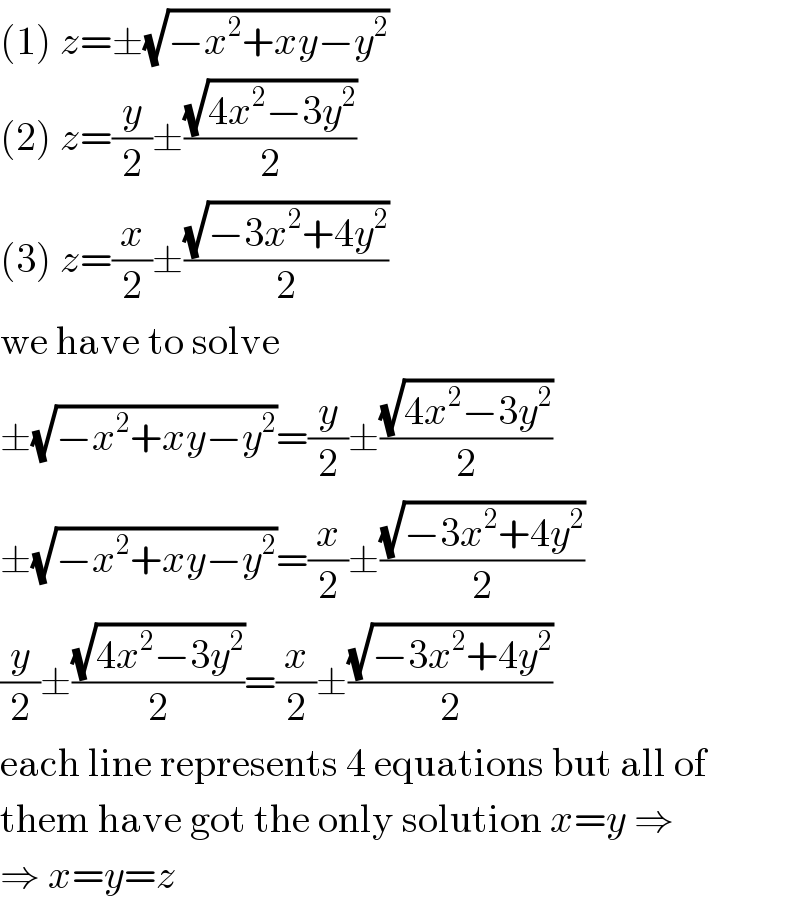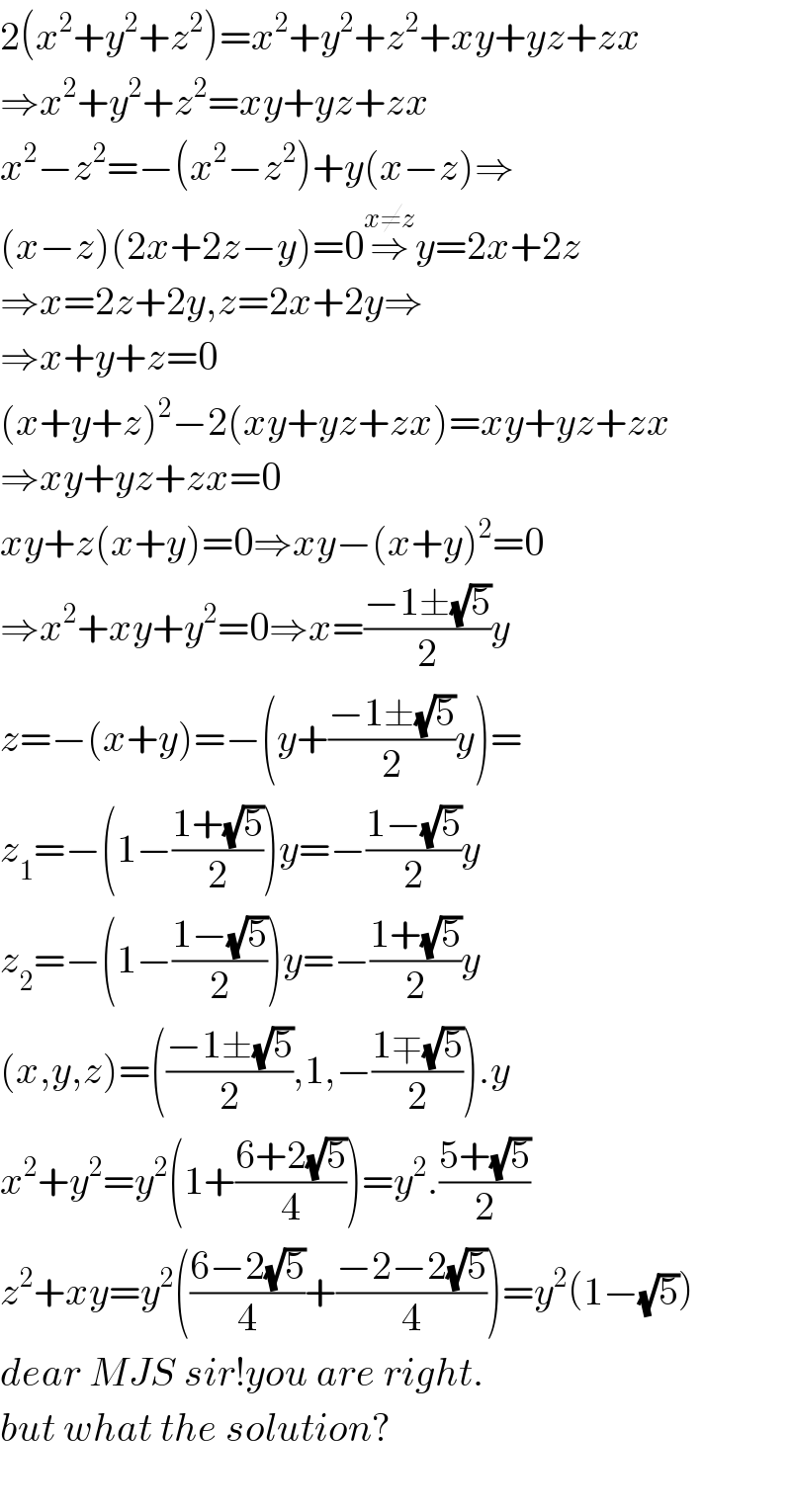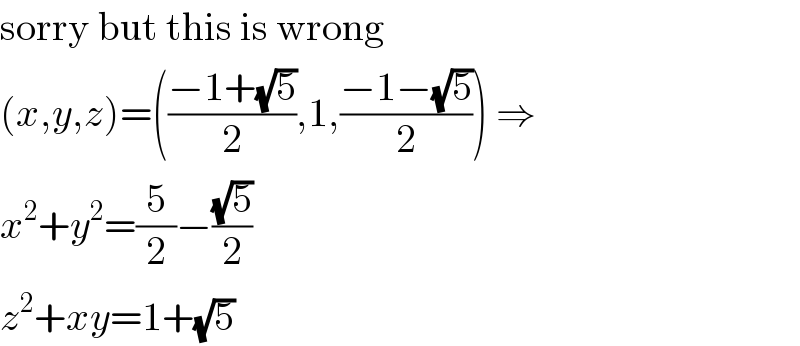
Question and Answers Forum
Question Number 41160 by behi83417@gmail.com last updated on 02/Aug/18

Commented by behi83417@gmail.com last updated on 02/Aug/18

Commented by MJS last updated on 02/Aug/18

Commented by MJS last updated on 02/Aug/18

Answered by MJS last updated on 02/Aug/18

Commented by rahul 19 last updated on 02/Aug/18

Commented by MJS last updated on 02/Aug/18

Answered by rahul 19 last updated on 02/Aug/18

Answered by behi83417@gmail.com last updated on 02/Aug/18

Commented by MJS last updated on 02/Aug/18

